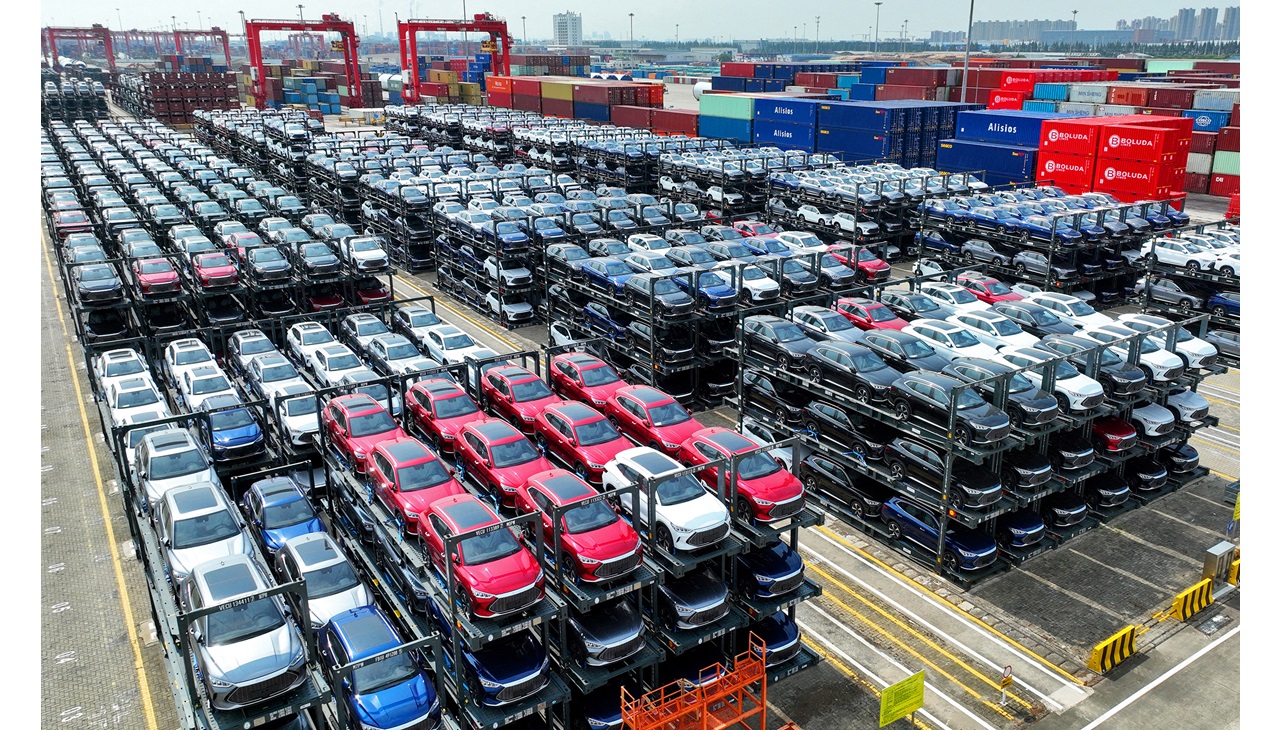
EU imposes significant tariffs on Chinese electric cars, escalating tensions in trade
In an effort to protect Europe’s auto sector, the European Union (EU) has imposed sizable import duties on electric cars (EVs) made in China. This decision was supported by the majority of member states.
Due to worries that Chinese automakers are profiting unfairly from state subsidies, tariffs on Chinese electric vehicles (EVs) are expected to increase from the current 10% to as high as 45% over the course of the next five years.
The new tariffs, which aim to level the playing field for European manufacturers, are the result of an EU inquiry that discovered Chinese electric vehicle manufacturers received significant state assistance, which enabled them to offer lower costs that European businesses find difficult to match. Targeted brands under the new tariffs include SAIC, BYD, and Geely; the costs are adjusted to account for the projected amount of subsidies these companies receive.
Member states were split over the move, which may start a trade war between China and the EU. Supporters of the proposals included France, Italy, the Netherlands, and Poland, who cited the need to save the European auto industry. Germany, whose exports to China are a large part of its economy, opposed the taxes, and big automakers like Volkswagen warned that such actions could have unintended consequences. Volkswagen called the levies “the wrong approach,” emphasizing how they would harm trade relations.
Several EU nations abstained from the vote, which was held last Friday. Proponents contended that doing nothing would jeopardize the stability of the European auto industry. Until a different arrangement is achieved, the tariffs will be in place for Chinese EVs for the next five years.
Beijing has denounced the EU’s decision as being discriminatory. China’s Commerce Ministry called the action “unfair” and “unreasonable,” but it did not close the door to discussion, implying that a dialogue could address the matter.
For China, which has been depending on the sale of high-tech goods, such as electric automobiles, to boost its flagging economy, the tariffs come at a sensitive moment. China’s main EV export market is the EU, thus any protracted trade disputes could be detrimental to both countries’ economy. A increasing number of companies, including the French cognac industry, are worried that their exports may suffer if China retaliates by slapping taxes on other European goods.
“We don’t comprehend why our industry is being compromised in this manner,” a representative of the French cognac industry, which is dependent on the Chinese market, stated. “There has to be a negotiated solution found.”
Concerns regarding the price of electric automobiles for European consumers are also raised by this move. Many worry that the already sluggish rise of EV adoption in Europe may stall even further as tariffs drive up prices. The EU saw a 43.9% decline in battery-electric car registrations in August compared to the same month last year, raising concerns that the market may not be able to meet the targets set for the shift away from fossil fuel-powered vehicles.
September saw a record high in the UK demand for electric vehicles thanks to manufacturer incentives and business deals. Industry insiders cautioned that these incentives might not last in the long run, though. The market is “not growing quickly enough” to fulfill forthcoming sales targets for electric automobiles, according to the Society of Motor Manufacturers and Traders (SMMT).
A minimum of 22% of vehicles sold this year must meet the UK’s Zero Emission Vehicle (ZEV) regulation; by 2030, the goal rises to 80%, and by 2035, to 100%. Manufacturers risk fines of £15,000 per vehicle if they don’t reach these quotas.
Several automakers, citing economic considerations including growing energy and material costs as causes for the higher prices of electric vehicles, have encouraged the UK government to reevaluate the current targets. These carmakers include BMW, Ford, and Nissan.
Since an EV now costs about £48,000 on average in the UK, many prospective customers are still put off.
All Categories
Recent Posts
Tags
+13162306000
zoneyetu@yahoo.com



